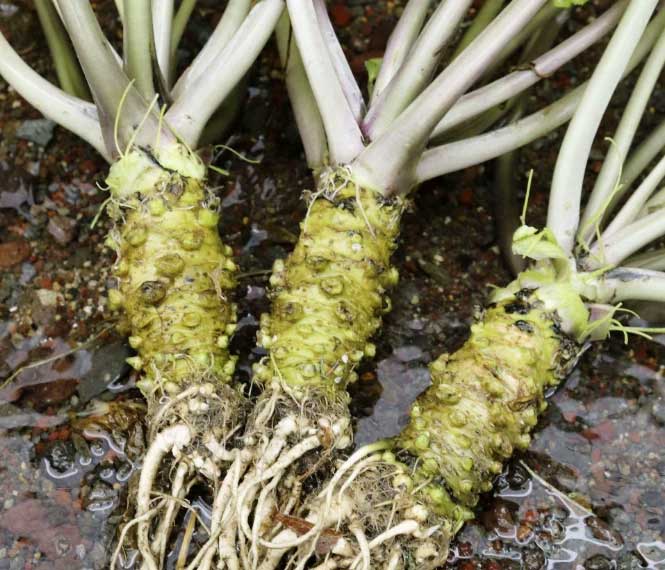A recent study has discovered that Wasabi, a traditional Japanese condiment often used with Sushi, may provide benefits in enhancing memory and cognitive abilities in older adults.

Wasabi plant grown in Japan. (Source: Kyodo News)
The research, conducted by the Japanese food processing company Kinjirushi in collaboration with Tohoku University, focused on a type of mustard oil known as Hexaraphane, which is found in small quantities in the stem and roots of the Wasabi plant.
The purpose of the study was to assess whether the Hexaraphane compound, known for its antioxidant and anti-inflammatory effects on the body, positively impacts cognitive function in healthy adults aged 60 and above.
A total of 72 healthy adults aged 60-80 were divided into two groups for the study. The first group received 0.8mg of Hexaraphane as a daily supplement, equivalent to 5g of Wasabi rhizome, over a period of 12 weeks. The second group received only a placebo.
Cognitive tests post-trial indicated that the supplement group showed significant improvements in memory compared to the placebo group. The enhancement in cognitive abilities was particularly evident in tasks involving short conversations, simple calculations, and matching names with faces.
Experts from Kinjirushi stated that they are researching the potential of these findings to develop new products aimed at enhancing memory.
An official from the company commented: “In the context of a globally aging population, we aim to leverage the health benefits of Wasabi to enhance longevity and physical condition among the elderly.”
The findings have been published in the online edition of the European journal Nutrients.


















































